New York Yankees' icon Derek Jeter is going to be a Baseball Hall of Fame-electee at the end of the day Tuesday. That may be it.
In his 10th and final season on the ballot, former National League MVP Larry Walker has received 85.4 percent of the ballots that Ryan Thibodaux's tracker has collected from those publicly released. Whether he can stay above the 75 percent threshold in his final year of eligibility remains to be seen.
Barry Bonds and Roger Clemens, both of whom are credibly linked to performance-enhancing drugs, are tracking just below 75 percent. With over half of all ballots not released publicly still, it appears unlikely that either of the two will be elected in their eighth year on the ballot.
Curt Schilling - whose social and world views haven't helped him in his quest to be elected to the Hall of Fame - is currently on track to be elected. We'll see, though, if the voters who haven't released their ballots to the public are as favorable to him in what is his eighth year on the ballot.
Whether he's elected or not, Walker won't be on the 2020 ballot. Bonds, Clemens and Schilling have just two more years remaining on the Hall of Fame ballot. By 2023, none of the names that we've spent nearly a decade debating Hall of Fame worthiness will be on the ballot anymore.
Rest assured, fierce debates about the Hall of Fame ballot won't end in 2023. When Walker, Bonds, Clemens and Schilling get a resolution one way or another, here are six names that are likely to become among the most heavily-debated names on the ballot:
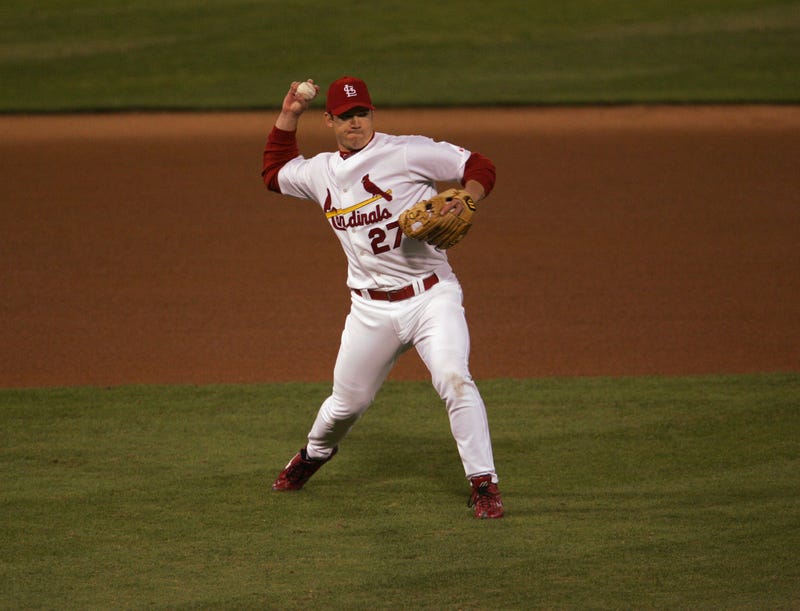
Scott Rolen: Has Been Eligible Since 2018
In November of 2018, I made the case for former star third baseman Scott Rolen to be inducted in Cooperstown for SportsRadio 94 WIP:
"Consider this: the average career bWAR for a Hall of Fame third baseman is 68.4. Rolen finished his 17-year career with a 70.2 bWAR, which trounces the career marks posted by Hall of Fame third basemen Home Run Baker (62.8) and Jimmy Collins (53.3).
WAR7 takes a player’s seven highest individual season bWAR totals - they don’t have to be in order - to give you an idea of how dominant someone was at their peak. It’s a statistic that puts in perspective how dominant someone like Chase Utley was at the height of his career. In Rolen’s case, he finished his career with a WAR7 of 43.7, also topping the average Hall of Fame third baseman’s mark of 43.0. His WAR7 of 43.7 easily tops the 39.7 mark that Paul Molitor, a first-ballot Hall of Famer, finished his career with.
JAWS has become another great tool in evaluating individual candidate’s Hall of Fame cases. If you are unfamiliar with the metric, here’s how Baseball Reference defines JAWS: “The JAWS (Jaffe WAR Score system) was developed by sabermetrician Jay Jaffe as a means to measure a player's Hall of Fame worthiness by comparing him to the players at his position who are already enshrined, using advanced metrics to account for the wide variations in offensive levels that have occurred throughout the game's history.”
Additionally, Rolen was an eight-time Gold Glove Award winner, and is one of the most dominant defensive players in MLB history. Between 2002 and 2012, the final 11 seasons of his career, he accumulated 114 defensive runs saved and FanGraphs says that he graded out as the sixth best fielder at any position in all of baseball. Mind you, 2002 was Rolen's age-27 season. Prior to that, defensive runs saved - a statistic used to quantify a defender's value - didn't exist. Rolen had played five plus seasons and won two Gold Glove Awards prior to 2002, so the 114 defensive runs saved that he finished his career with - a pretty staggering amount - don't even fully put into perspective how impressive he was defensively.
In a sense, Rolen's peak greatness was lost in the Steroid Era. In 2004, he slashed .314/.409/.598 with 34 home runs, 124 RBIs, 30 defensive runs saved and a 9.0 fWAR. For such an incredible season, he finished just fourth in National League MVP voting, behind Barry Bonds, Adrian Beltre and Albert Pujols. Bonds is widely believed to have been using performance-enhancing drugs in 2004, when he won his record seventh National League MVP Award.
How rare is it to post a 9.0 fWAR, though? The only players to post a 9.0 fWAR or higher in a single season during the 2010s were Mike Trout, Buster Posey, Jacoby Ellsbury, Bryce Harper and Mookie Betts. Four out of those five players are on track to be Hall of Famers when their respective careers conclude. Rolen had that dominant of a season at his peak, something that baseball history shouldn't forget as the highlight of an overall Hall of Fame worthy career.
Rolen won't be elected in 2020, but he's already seen a gigantic jump in his support since last year.
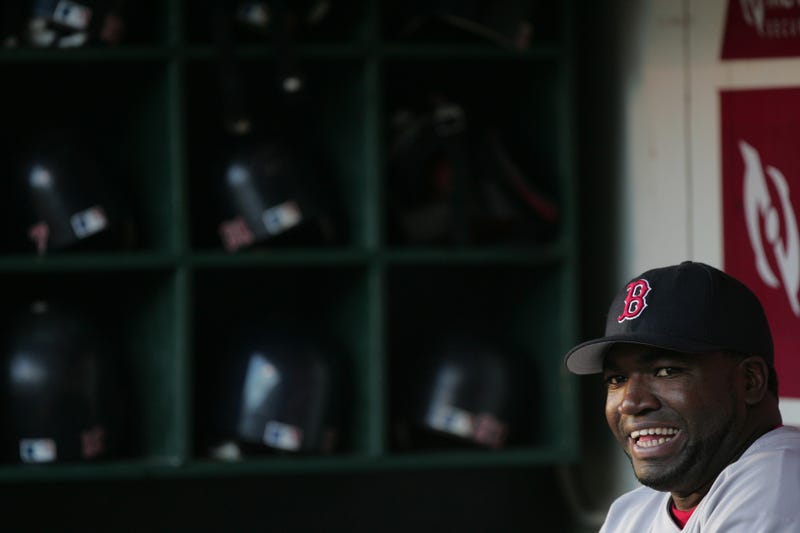
David Ortiz: First Eligible in 2022
If we're just going off of career accomplishments, Ortiz is unquestionably worthy of induction into the Baseball Hall of Fame.
In 20 seasons spent with the Minnesota Twins and Boston Red Sox, Ortiz slashed .286/.380/.552 with 541 home runs and 1,768 RBIs. He helped the Red Sox to snap an 86-year World Series curse in 2004, and ultimately led the team to two more World Series titles before his illustrious career wrapped up. With 17 home runs, 61 RBIs and a .947 OPS, Ortiz is one of the most dominant postseason hitters in MLB history.
Even when you factor in that voters aren't traditionally inclined to vote for players who rarely played in the field, Ortiz would be a first-ballot Hall of Famer if the only thing accounted for were his statistics.
However, it's not that simple.
In July of 2009, Michael S. Schmidt of The New York Times reported that Ortiz was among a large group of players that tested positive for performance-enhancing drugs during what was supposed to be anonymous testing in the midst of the 2003 season.
He's denied it - and played for over a decade after the reported failed test took place. Commissioner Rob Manfred cast doubt on how seriously the list of those who failed the tests in 2003 was should be taken. And unlike many others connected to performance-enhancing drugs, Ortiz has a great reputation as a human and is one of the most beloved personalities to ever play the game. Whether they should or not, all of those factors could help Ortiz.
By the time the man affectionally referred to as "Big Papi" becomes eligible for the Hall of Fame ballot, both Bonds and Clemens will have exhausted their eligibility, one way or another. If they get in, it feels very safe to assume that Ortiz also will. If they don't, predicting how he will fare on the ballot will become a very inexact science.
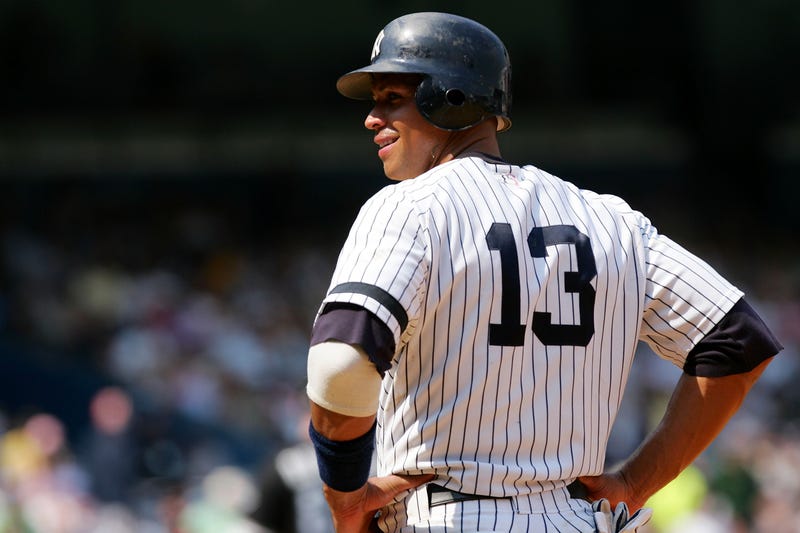
Alex Rodriguez: First Eligible in 2022
If Bonds and Clemens aren't ultimately inducted into the Baseball Hall of Fame, it's hard to see a path where Rodriguez is. Even if they are, that doesn't necessarily mean that A-Rod will ultimately be gifted a plaque in Cooperstown.
Lost in a series of scandals and his celebrity status is that Rodriguez is one of the 10 most accomplished position players in MLB history. Rodriguez was a three-time American League MVP, 14-time All-Star, 10-time Silver Slugger Award winner and finished his career with 696 home runs, which is fourth in MLB history. Though some of his peak years came when he played for the Seattle Mariners and Texas Rangers, Rodriguez will be remembered as a Yankee, the place that he spent the last 12 years of his career. A-Rod helped the Yankees to capture their 27th World Series title in 2009.
Of course, all these accomplishments come with an asterisk. Rodriguez was named in the same 2003 report that connected Ortiz and others to failed PED tests. He later admitted using PEDs from 2001-2003, his three seasons with the Rangers. It's tough to think his use of performance-enhancers was isolated to those three seasons, however, especially when you consider he was suspended for the entire 2014 season for his connection to the Biogenesis scandal.
Certainly, Rodriguez has rehabilitated his image since retiring after the 2016 season. He's part of ESPN's Sunday Night Baseball telecasts. He works for FOX during the MLB postseason. He's on commercials for Planter's Peanuts and has appeared on ABC's "Shark Tank," two things that would have been unthinkable even five years ago. He's engaged to entertainment superstar Jennifer Lopez.
The business world has bought into Rodriguez's transformation, whether they believe he's contrite or not. From here, voters are unlikely to be as forgiving.
Rodriguez probably can't overcome admitting he used PEDs. While there's some evidence that Bonds has tested positive for PEDs, neither he or Clemens were suspended by the league for their connections to the drugs. So even if there's a place for Rodriguez in the game, there probably isn't a spot for him in upstate New York.
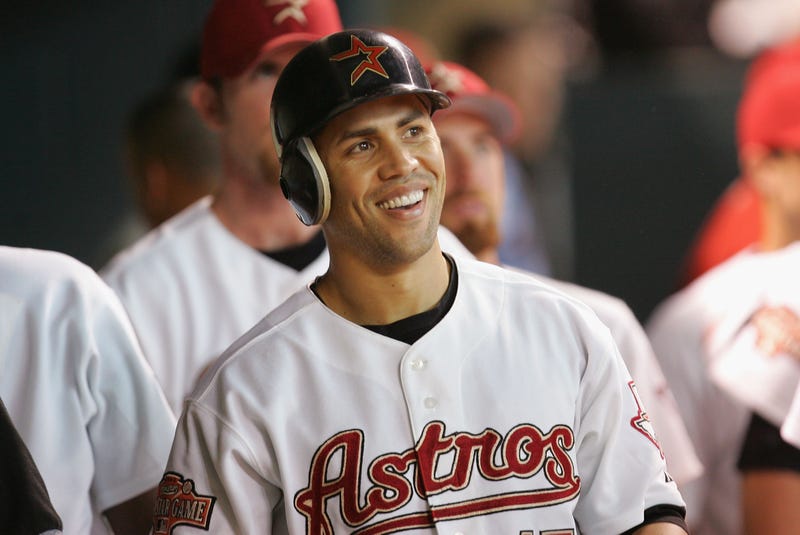
Carlos Beltran: First Eligible in 2023
Three months ago, Beltran was seen as pretty likely to eventually be inducted into the Hall of Fame. He was also the manager of the New York Mets three months ago.
There's this strange dynamic with Beltran that's going to emerge when he eventually becomes eligible for the Hall of Fame; he's going to be remembered as a Houston Astro. Beltran was first traded to the Astros in June of 2004. He spent the rest of the 2004 season with the Astros, before leaving to sign with the New York Mets that offseason. Prior to the 2017 season, Beltran returned to the Astros, who had since moved to the American League, and helped them to win their first World Series title in franchise history.
In total, Beltran played just 219 of his 2,586 career regular season games with the Astros. He spent larger chunks of his career with the Kansas City Royals, New York Mets, St. Louis Cardinals and New York Yankees. But he'll be remembered as an Astro.
In 2004, Beltran, on the cusp of free agency, hit .435 with eight home runs and 14 RBIs in 12 postseason games. The Astros lost to the then-division-rival St. Louis Cardinals in the NLCS in seven games. 13 years later, Beltran hit just .231 with 14 home runs and 51 RBIs for the Astros, but he did so for a team that eventually won the World Series.
Of course, that World Series title is now largely viewed as tainted because of the Astros' sign-stealing scandal. A.J. Hinch, the team's manager, lost his job earlier this month. Alex Cora, the 2017 team's bench coach, lost his job as Boston Red Sox manager, with allegations also looming against the 2018 Red Sox, who won the World Series. And Beltran, a player for the 2017 Astros, lost his job as Mets' manager before ever managing a game for his connection to the scandal.
"Approximately two months into the 2017 season, a group of players, including Carlos Beltran, discussed that the team could improve on decoding opposing teams’ signs and communicating the signs to the batter," Manfred noted on page two of his report detailing the findings on the Astros' scandal. Even if that simply represented a nine-time All-Star trying, for the first time, to gain an advantage as he slipped physically, what it represents may be enough to keep him out of the Hall of Fame.
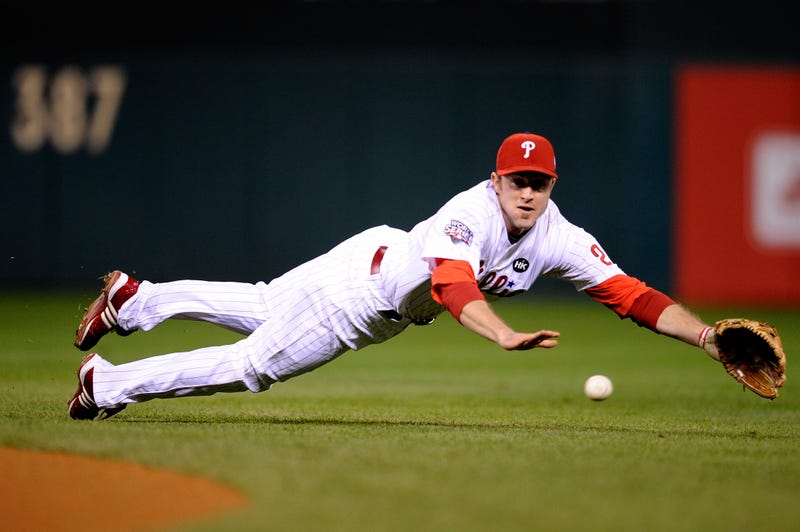
Chase Utley: First Eligible in 2024
Utley's case isn't going to be about whether he was a Hall of Fame-caliber player at his peak - he was. His case will come down to whether a remarkable peak can help him to overcome some underwhelming - in a relative sense - counting numbers.
WAR 7, which takes a player's seven highest career WAR totals, is very high on Utley. The average WAR 7 for a Hall of Fame second baseman is 44.4, while Utley finished his career with a 49.3. He also tops the average Hall of Fame second baseman in JAWS and comes just shy in bWAR, two key metrics Hall of Fame voters use.
While he doesn't have a National League MVP like his long-time teammates Ryan Howard and Jimmy Rollins, he has the best Hall of Fame case of the trio. He was a six-time All-Star, whose defense was criminally underrated - he graded out as the best fielding second baseman in baseball over the course of his career, and the ninth best fielder in all of baseball between 2004 and 2018. He also is tied with Reggie Jackson and George Springer for the most home runs in a single World Series, as he hit five in the 2009 World Series.
It would be incorrect to say Utley didn't have longevity. When he retired after the conclusion of the 2018 season, he was the oldest position player in baseball. He had a couple of issues that made it hard for him to accumulate counting numbers. First of all, he was blocked by Placido Polanco at second base and didn't play in more than 100 games until his age-26 season. Additionally, what appeared to be career-threatening knee injuries limited him to just 301 of a possible 486 games between 2010 and 2012 - his age-31-33 seasons.
So, for as impressive as Utley's peak statistics are, he finished his career with just 1,885 hits. As B.J. Martin of Prime Time Sports Talk noted, there hasn't been a regular position player with less than 2,000 career hits elected to the Hall of Fame since Larry Doby, who last played in the 1959 season. Though he played another position, you wonder if Andruw Jones doesn't begin to gain some real traction if that reflects poorly on Utley's chances. Both were unquestionably Hall of Fame calibers at their peak, but for different reasons finished with less than 2,000 career hits.
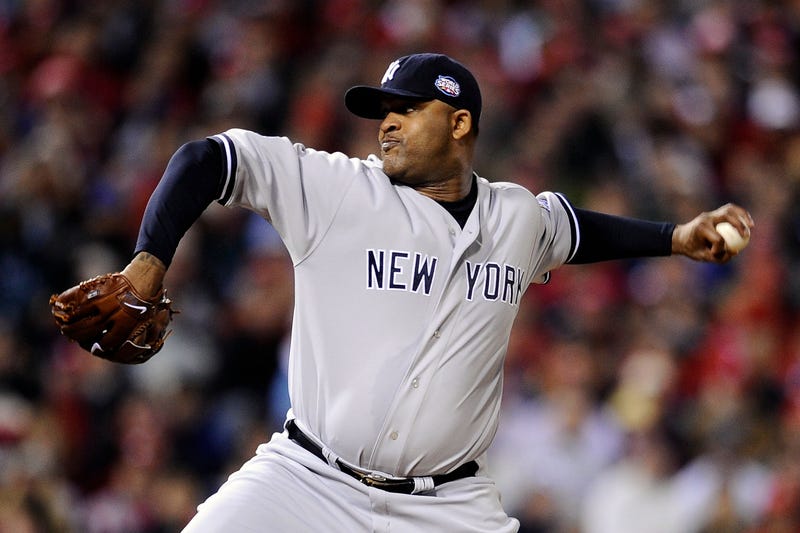
CC Sabathia: First Eligible in 2025
It's funny - CC Sabathia won the 2007 American League Cy Young Award winner as a member of the Cleveland Indians, two years before he helped lead the New York Yankees to their 27th World Series title. His absolutely peak came in the second half of 2008, though, when he went 11-2 with a 1.65 ERA and seven complete games in 17 starts with the Milwaukee Brewers, willing the team to their first postseason appearance since 1982.
Certainly, Sabathia, who made six All-Star teams, had stretches of his career where he was Hall of Fame worthy. Whether the overall body of work will land him in Cooperstown is unclear.
The average Hall of Fame starting pitcher finished their career with a 73.2 bWAR, 49.9 WAR 7 and 61.5 JAWS. How pitchers have been used over the course of baseball history has obviously changed, but Sabathia comfortably finished below all of those marks, with a 63.0 bWAR, 39.3 WAR 7 and 51.2 JAWS.
In fairness to Sabathia, his numbers trounce those of Jack Morris, a 2018 inductee. Those two didn't pitch in the same era, though, and Sabathia's career numbers do fall short of contemporaries like Roy Halladay, Zack Greinke, Justin Verlander, Clayton Kershaw and Max Scherzer, which voters may be more inclined to look at.
The feeling here is Sabathia will remain on the Hall of Fame ballot for all 10 years, but struggle to get to the 75 percent required to be elected.
LISTEN NOW on the RADIO.COM App
Follow RADIO.COM Sports
Twitter I Facebook I Instagram